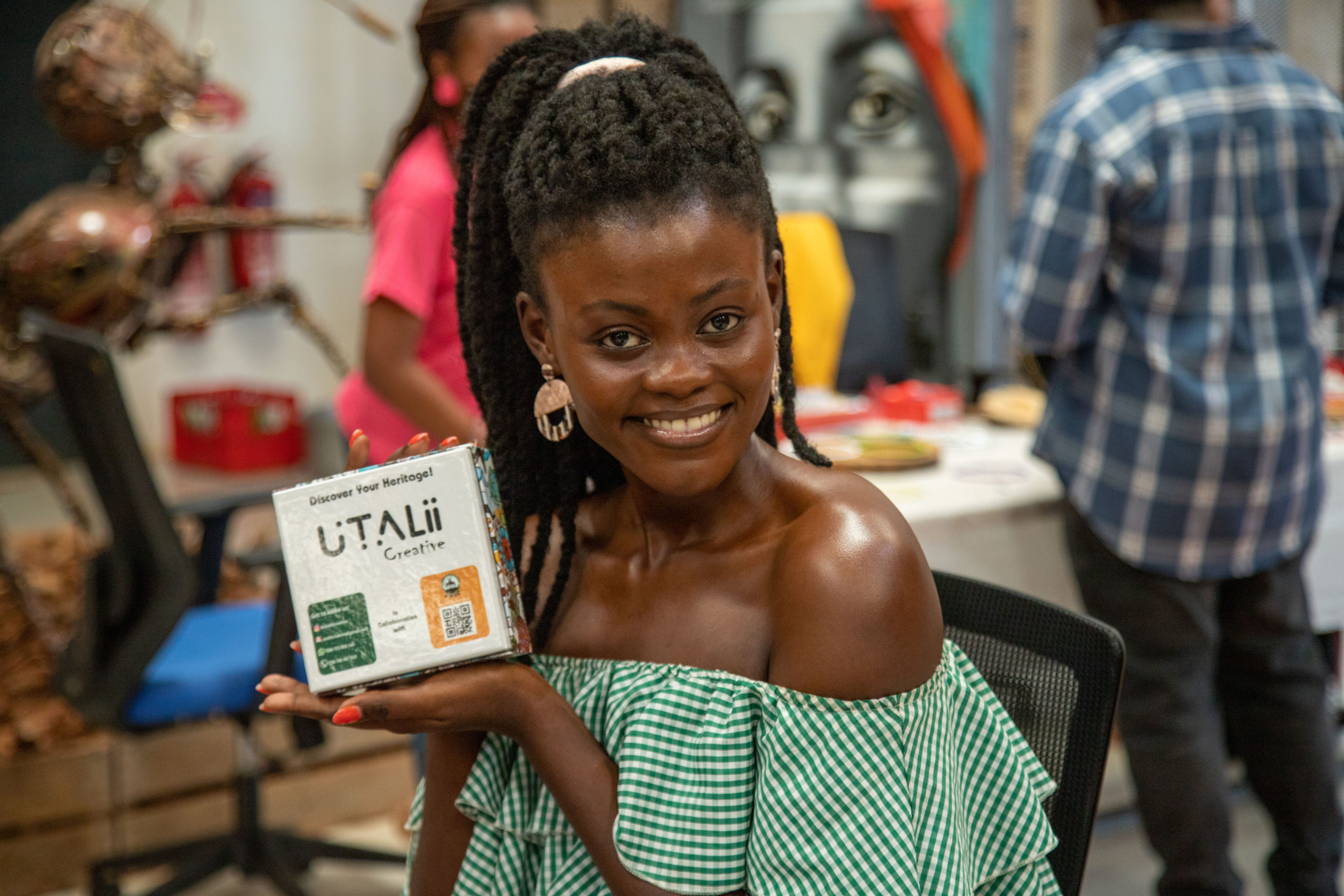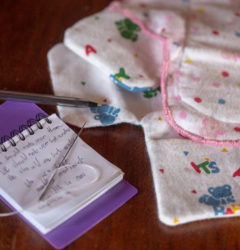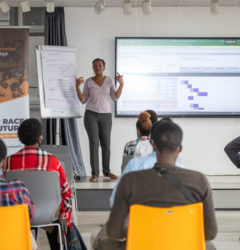27 May

Emily Banya is a 25-year-old woman who takes immense pride in being Ugandan and African. This national and continental pride sprung from her travels when she flew from Uganda to South Africa for her education. As a foreigner in another nation, she found herself interacting with xenophobia and racism. Here, she began to understand the importance of cultural pride and representation.
Banya began thinking about how to counteract the negative stereotypes about Uganda and the African continent when she worked in a tourist shop in South Africa. Through selling souvenirs to tourists, she realised the profound purpose that artefacts and souvenirs serve in exporting the beauty and culture of a country.
She also found the ideal solution in a time of her own crisis. In a period rife with anxiety levels, Banya began reading to get to the crux of her anxiety and she found a light bulb moment in an explanation about how the brain works. Through material on the internet, she found out that because our brain is a problem-solving organ, the relative stability in this era barely provides many problems for our brains to solve. In an era where it’s easy to get food, shelter and security, the absence of fundamental problems to solve, preoccupies the brain with minor issues. Eventually, these issues are blown out of proportion leading to chronic anxiety. Banya says she discovered that giving your brain something creative to do, such as playing chess, improves its health.
To resolve her own crisis, she began looking for recreational puzzles to engage her brain. She discovered that the puzzles sold in Ugandan bookstores had images from other countries including The Grand Canyon, The Big Ben in London and general elements of cultural pride from the global west.
Right at the junction where two problems, cultural stereotypes and anxiety intersected, is where Banya found her solution. She came up with Utalii Creative Puzzles, recreational puzzles that challenge the mind positively. In addition to that, these puzzles would export the richness of Ugandan culture to tourists.
This project sent her researching how puzzles are made and where she could find resources to help her.
With the support of her father, she pitched the idea to the Uganda Tourism Board (UTB). The tourism promoting body found it innovative and encouraged her to create a sample.
As she began putting together a network of people to bring this dream to life, the nation went into lockdown and stalled progress. However, Banya went on to hire a design company and within eight months, she had her first prototype.
She returned to UTB seeking a partnership. A month and a half later, with a few bureaucratic hurdles to leap through, Banya was able to get a business partnership with Uganda Wildlife Authority.
Further speaking to the Executive Director Uganda Wildlife Education Conservation Education Centre (UWEC), James Musinguzi, Banya was able to understand that one of the mammoth tasks that the entity is facing is interesting Ugandans in the preservation of wildlife.
To this problem, Banya decided to create puzzles bearing images of Ugandan wildlife as well as factual information about the country’s diverse animal kingdom. Now, the puzzles are not only recreational pieces, they also acquaint people with knowledge about Uganda’s beauty.
As big dreams go, there is a lot of work going into them too. Owing to the nature of this project, Banya has built everything from scratch in order to make puzzles that meet standards. She has to find a machine that makes these puzzles and materials that are affordable.
Being one of the pioneers of this business, the expenses emanating from setting up production structures weigh down the young entrepreneur.
“It has been a challenge working as a creative in this society because it is hard to get people to believe in this vision. People are also not patriotic because they think the country has very many problems,” Banya says.
Fortunately, she is able to get through the highs and lows of the business thanks to a community of creatives.
“You need to be reminded that your ideas are great. The community is generous with its insights and networks,” Banya says.
With some products to show for her efforts, Utalii Creative Puzzles have hit the market at a cost of Shs40,000 per puzzle.
She currently exhibits at Omwoleso, the monthly marketplace where creatives sell their products, interact with customers and network with one another at MoTIV in Bugolobi, Kampala. Her puzzles are also available for purchase at the MoTIV online shop. Through Omwoleso, she has been able to sell puzzles worth Shs80,000 to curious buyers who have given her encouraging feedback on how engaging they are as well as how they can be refined to fit the market.
Banya’s dreams are bigger than what she has achieved so far with the puzzles. In her vision, she sees Utalii Creatives as a company that promotes tourism through creating memorabilia that will counteract the negative stereotypes of Africa.
An endless flow of innovation towards the country’s problems awaits the support of ecosystems like The Innovation Village. As Banya promotes environmental consciousness, mental wellness and national pride, we are reminded of how solutions to our problems will at times spring from our own personal crises.










Recent Comments